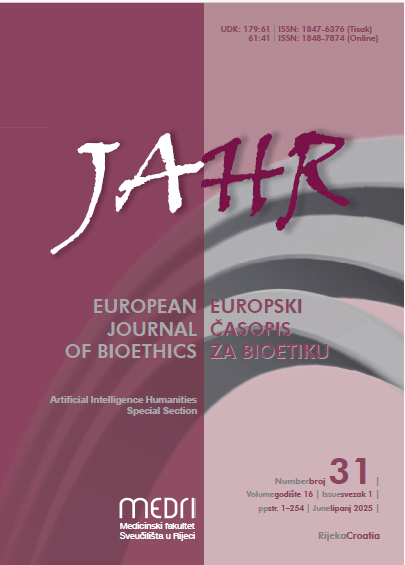Smisao života – od antike do egzistencijalizma i logoterapije
Keywords:
svrha života, smisao života, logoterapija, Viktor E. Frankl, egzistencijalizamAbstract
https://doi.org/10.21860/j.16.1.8
Smisao i svrha života u ovome radu dovode se u povezanost sa življenjem dobroga i sretnoga života, kao i s nadilaženjem potreba i pronalaskom „viših svrha”. Od pripadnika antičke filozofije istaknuti su Platon, Aristotel, Epiktet i Epikur, usuglašeni u tome da je za dobar i smislen život potrebna duhovna kultivacija samoga sebe. Potom se osvrćemo na filozofiju egzistencije i njezine temeljne pojmove kao što su sloboda i odgovornost, s naglaskom na individualnome pronalasku smisla osobe.
Radom se nastoji: 1) objasniti ulogu i značaj smisla života; 2) prikazati neke od ključnih točaka u poimanju smisla života u antičkoj filozofiji i egzistencijalizmu te njihovim sličnostima i razlikama; 3) prikazati logoterapiju – psihoterapijski pravac predmetno usredotočen na smisao; i 4) ukazati na nezaobilaznu ulogu filozofije u potrazi za smislom.
Nastoji se i evaluirati te pokazati da je pitanje smisla te njegova zahvaćanja i raskrivanja čovjeku univerzalno svojstveno, kao i da je to pitanje na koje se kroz povijest nastojalo odgovoriti na razne načine. Zaključuje se da se smisao može pronaći uz pomoć Drugoga i da do smisla svaki pojedinac dolazi svojim vlastitim individualnim putem i načinom.
Downloads
Published
Issue
Section
License
Authors who publish with this journal agree to the following terms:
- Authors retain copyright and grant the journal right of first publication with the work simultaneously licensed under a Creative Commons Attribution License that allows others to share the work with an acknowledgement of the work's authorship and initial publication in this journal.
- Authors are able to enter into separate, additional contractual arrangements for the non-exclusive distribution of the journal's published version of the work (e.g., post it to an institutional repository or publish it in a book), with an acknowledgement of its initial publication in this journal.
- Authors are permitted and encouraged to post their work online (e.g., in institutional repositories or on their website) prior to and during the submission process, as it can lead to productive exchanges, as well as earlier and greater citation of published work (See The Effect of Open Access).



